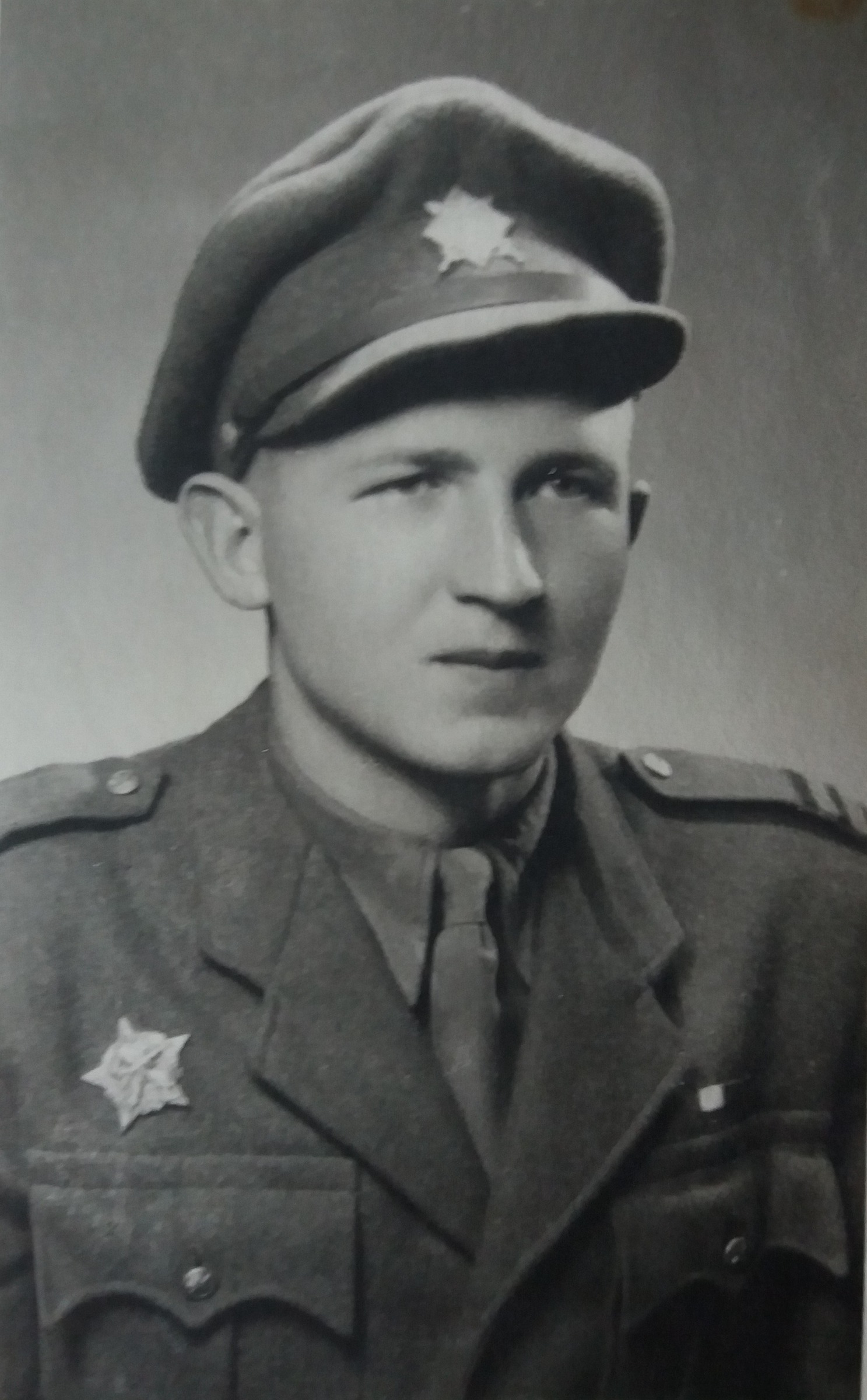We all fought for the Czechoslovak Republic and against Nazism

Stáhnout obrázek
Ján Rišian was born on 22 April 1928 in Slovakia in the village of Ivančina near Martin. His father worked as a mechanical locksmith, and in 1919, as a volunteer, he intervened against the communist Slovak Republic. When the witness was twelve years old, his mother died. He soon left home to attend forestry school and soon began working at Martin‘s as a forestry trainee. Here he also came into contact with the partisan movement, with whose participants he had been acquainted since 1943, when he was fifteen years old. He joined the partisan ranks in 1944, shortly before the outbreak of the Slovak National Uprising, in the village of Sklabiňa in the surroundings of Veľká Fatra. After a short training, he joined the fighting of the Slovak National Uprising, in the detachment he experienced the liberation of the Rajec valley, the retreat to the Kunerad valley and the final defeat and mixing of the detachments after the end of the uprising. As a man very familiar with the terrain thanks to his former work in the local forests, he was often used by the commanders as a liaison between the troops, but he also went through a number of classic combat actions, for example, participated in the disruption of railway lines. During the war, he also managed to rescue two men, a fellow soldier of Jewish descent whom he had hidden with his parents, and a wounded man whom he had supported during the long night retreat to the base. He was also intensely aware of events related to the partisan way of life itself. He was deeply impressed, for example, by the executions he witnessed, the removal of collaborators, German spies sent among the partisans, or even the partisans themselves who committed unacceptable disorders. Immediately after the war, he began studying at the military academy and remained in the ranks of the army until 1980, when he retired. In 2018, he was living in the Home for War Veterans in Carlsbad.

















